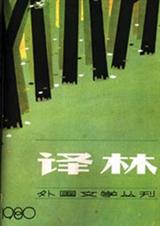30+mba-第49部分
按键盘上方向键 ← 或 → 可快速上下翻页,按键盘上的 Enter 键可回到本书目录页,按键盘上方向键 ↑ 可回到本页顶部!
————未阅读完?加入书签已便下次继续阅读!
allowed more detailed records to be made more easily。 And extensive
records were kept; particularly for the network of royal storehouses within
which the ‘in kind’ tax payments such as sheep or ca。。le were kept; as coinage
had not yet been developed。
Egyptian bookkeepers associated with each storehouse kept meticulous
records; which were checked by an elaborate internal verification system。
These early accountants had good reason to be honest and accurate; because
irregularities disclosed by royal audits were punishable by fine; mutilation
or death。 Although such records were important; ancient Egyptian accounting
never progressed beyond simple list making in its thousands of years of
existence。 Almost one million accounting records in tablet form currently
survive in museum collections around the world
China; during the Chao Dynasty (1122–256 。。。。); used bookkeeping chiefly
as a means of evaluating the efficiency of governmental programmes and
the civil servants who administered them。 A level of sophistication was
achieved which was not surpassed in China until a。。er the introduction of
the double…entry system a thousand years later。
166 The Thirty…Day MBA
Accounts in ancient Rome evolved from records traditionally kept by the
heads of families; where daily entry of household receipts and payments
were kept in an adversaria or daybook; and monthly postings were made to
a cashbook known as a codex accepti et expensi。
Up to mediaeval times; this single…entry system of bookkeeping; divided
into two general parts; Ine and Outgo; with a statement at the end
showing the balance due to the lord of the manner; prevailed in England; as
elsewhere。 Although these accounts were fairly basic; they were sufficient
to handle the needs of the very simple business structures that prevailed。
Businessmen operated for the most part on their own account; or in singleventure
partnerships that dissolved at the end of a relatively short period
of time。 This; incidentally; was still the essence of the structure of Lloyd’s
insurance market into the 21st century。 Judging from the uniformity of the
way the single…entry bookkeeping was practised; it seems fairly certain that
a model was worked out; wri。。en up; and widely adopted。
Law: Hammurabi’s Code: 1795–1750 BC
Business needs law to determine property rights; without which no meaningful
enterprise can take place; and to govern the behaviour and responsibilities
of buyers; sellers and others involved in any transaction。 The laws
that govern business behaviour have evolved over millions of years。 The
Hammurabi code of laws is the earliest…known example of an entire body
of laws; arranged in orderly groups; so that all might read and know what
was required of them。 The code was carved on a black stone monument; 8
feet high; and clearly intended to be in public view。 The stone was found
in the year 1901; not in Babylon; but in a city of the Persian mountains; to
which some later conqueror must have carried it in triumph。 The original
code now resides in the Louvre Museum in Paris; though much of it has
been erased by time。
The code regulates in clear and definite strokes the organization of society
in general and mercial dealings in particular。 One law states that ‘if
a man builds a house badly; and it falls and kills the owner; the builder is to
be slain。 If the owner’s son was killed; then the builder’s son is slain。’ Even
4;000 years ago it was considered necessary to protect consumers from
shoddy workmanship。
The following laws give evidence of a fairly sophisticated business environment
that was well established and prolific enough to require detailed
regulation:
。 If a merchant entrust money to an agent (broker) for some investment;
and the broker suffer a loss in the place to which he goes; he shall make
good the capital to the merchant。
Business History 167
。 If; while on the journey; an enemy take away from him anything that he
had; the broker shall swear by God and be free of obligation。 This is a
forerunner of the term ‘force majeure’ which under today’s contract law
frees both parties from liabilities and obligations when an extraordinary
event beyond their control (war; natural disaster; strike etc) occurs。
。 If a merchant give an agent corn; wool; oil; or any other goods to transport;
the agent shall give a receipt for the amount; and pensate the
merchant therefore。 Then he shall obtain a receipt from the merchant
for the money that he gives the merchant。
。 If the agent is careless; and does not take a receipt for the money which
he gave the merchant; he cannot consider the un…receipted money as
his own。
。 If the agent accept money from the merchant; but have a quarrel with
the merchant (denying the receipt); then shall the merchant swear before
God and witnesses that he has given this money to the agent; and
the agent shall pay him three times the sum。
Hammurabi’s code was certainly not the earliest。 Preceding sets of laws
have disappeared; but several traces of them have been found; and
Hammurabi’s own code clearly implies their existence。 He only claimed to
be reorganizing a legal system long established。
Family business: Kongo Gumi: 578–to date
According to an 8th…century chronicle considered to be Japan’s oldest written
history; the first Kongo came to Japan from what is now South Korea
and remained in the country at the request of Emperor Yomei。 The first
Kongo built Shitennoji; one of Japan’s first Buddhist temples; in Osaka
and the pany still serves as its ‘chief carpenter’; handling repairs and
construction of new buildings almost exclusively。
Just as it did in 578; the firm specializes in building traditional Buddhist
temples and Shinto shrines; although it has branched out somewhat into
general contracting。 There are no textbooks to teach miyadaiku (specialists
in the construction of shrines and temples) how to construct their plex
wooden frameworks。 The skills are passed down through an apprenticeshiplike
system; where younger carpenters ‘learn and steal’ the trade from the
master。 The skills are considered an intangible cultural asset; for which they
feel a great responsibility and a need to pass it on to younger generations。
The firm has been in profit for as long as employees can remember;
racking up sales of 9。4 billion yen (RM304m) in the last business year。 It
hasn’t all been smooth sailing; though。 In the late 19th century; business
nearly came to a halt owing to an anti…Buddhist movement that led to the
destruction of some temples。 During the last war; the pany managed to
survive by building wooden boxes for military use。
168 The Thirty…Day MBA
Masakazu Kongo; the firm’s current boss; has some enduring advice for
businesses: ‘Everybody may be fre。。ing about the recession; how tough
times are; but you shouldn’t be overwhelmed by all the gloom。 Believe in
your business and stick to it。’
MEDIAEVAL MERCHANTS (1000–1700)
The next half millennium saw as much development in the business world
as had occurred in the whole of recorded history up to that date。 The
first business advisers hit the road with a message very similar to the one
espoused by the Economist magazine (9–15 March 2002) nearly a thousand
years later: ‘Be honest; be frugal; be prepared。’ A network of international
banks straddled Europe; city and family conglomerates were established;
some that survive to this day。
The first ‘management consultants’
This is one of the earliest business gurus; an anonymous Norwegian author;
offering advice to the international businessmen of the day in a treatise
entitled ‘The King’s Mirror’ (circa 。。。。 1260)。 The treatise is wide ranging;
with only part of it dealing with merchants of the day。 From this we can
see that wri。。en expert advice for business people is by no means a recent
innovation。 We can also deduce that long before Stanford and Harvard
launched their MBA programmes; numeracy; networking and corporate
responsibility were high on the list of skills needed for success in business。
The tips about ho



